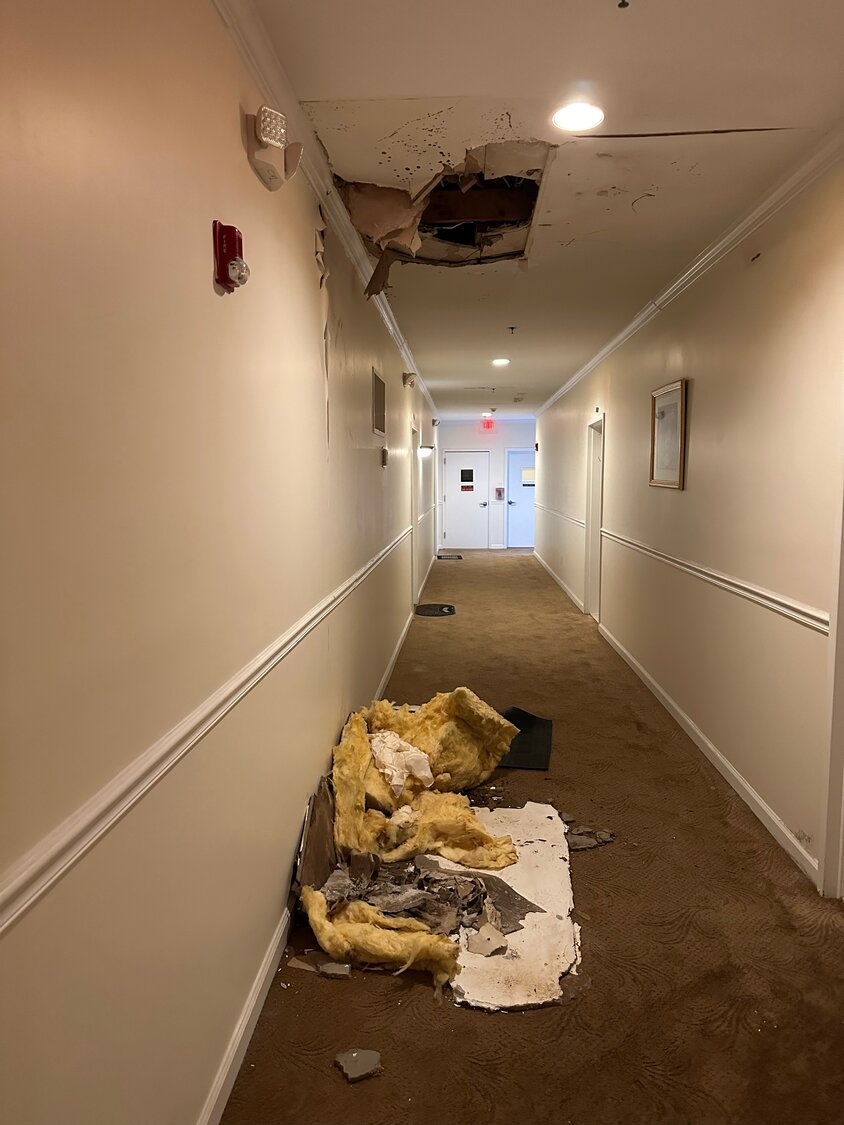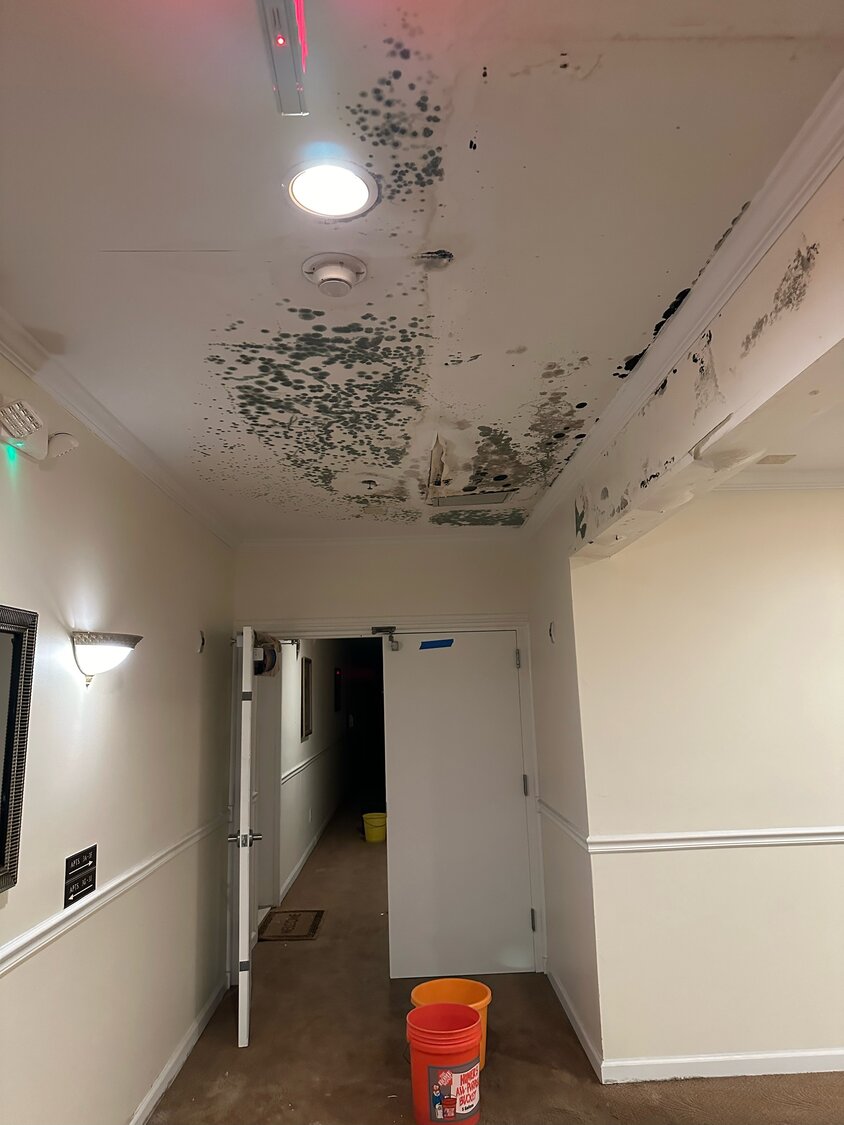Residents of 1888 Foster Meadow Lane remain homeless eight months later
Many area residences and businesses were inundated by flash flooding during a severe rainstorm last Sept. 29. For 30 residents of 1888 Foster Meadow Lane, a cooperative for senior citizens in Elmont, the problems caused by the storm remain unresolved eight months later, as the building’s condition continues to deteriorate.
“I’m homeless,” said 87-year-old resident Ernestine Mair, who now shares a room with her daughter in Valley Stream, where she is living out of bags of clothes. “I don’t live nowhere.”
The building was condemned by the Town of Hempstead Building Department on Sept. 29 after the storm, leaving residents homeless.
When the storm hit, residents were brought to New Hyde Park Memorial High School for emergency shelter. Afterwards, they were housed at the Long Island Marriott Hotel in Uniondale at a cost of more than $200,000 for a week, according to the county.
The county filed a lawsuit on Oct. 4 just weeks after officials condemned the 18-year-old building over fire code violations. Targeted in the complaint are Woods and Ruff Management, the property manager brought on in 2020, as well Bedford Construction Group, which constructed the complex in the first place. Also named in the suit is 1888 Foster Meadow Lane Redevelopment Corp. — the co-operative collectively representing the seniors who own units there.
The displaced residents now live in nursing homes, have found apartments elsewhere or are staying with friends or family members. And their displacement has come at a cost. Carlos Martin and his siblings, whose parents lived in the building, have been paying $500 a month to house them at an apartment in the country of Columbia.
“I feel sorry for these people who are still paying mortgages, maintenance, and now for a place to stay,” Martin said. “There are people who spent most of what they had in their 401(k), they spent it on this place, on these apartments. So basically, right now, all of the money that they invested here is gone.”
The building has been in a state of disrepair ever since the storm. A pipe burst in the third-floor ceiling in January, soaking ceilings and floors and leading to a buildup of mold. Carolina Malagon, who lived with her parents in the co-op when the storm hit, has been visiting the property every Saturday to evaluate the situation — which she said has only gotten worse. No repairs have been made since the pipe burst in January, she said, and debris remains in the hallways.
Many residents want to be bought out of the property and be rid of the frustrations it has caused them, but they say they are concerned about finding affordable housing elsewhere.
Malagon has had to look for an apartment for herself and her fiancé, and said she felt guilty about leaving her parents behind. She could not find an affordable two-bedroom apartment for herself.
“I feel like there’s two solutions: The building either gets sold or it gets fixed,” she said. Her mother is holding out hope to return to their apartment one day.
The September storm wasn’t the first time the building has flooded, and the co-op is heavily in debt. The building had dealt with flooding as far back as 2011, and residents were displaced for two months after Tropical Storm Ida in September 2021. Damage to the building’s elevator caused by the Sept. 29 flood has an estimated repair cost of $97,000, but is not covered by insurance, because the equipment that operates it was built underground.
The co-op board did not respond to the Herald’s request for comment on whether it had met to discuss the elevator issue or how it would address the debt it had incurred before the September storm. The board’s attorney, Frank Mavroudis, said that the co-op is “well over $100,000 in debt.”
“We’re deep, deep in debt,” said Janester Thompson, a former secretary for the board.
The board, and Woods and Ruff, said that several inspectors have come to the building to assess the potential cost of repairs. In addition to the elevator, the building needs new electrical equipment, plumbing, water heaters, a roof, mold remediation and more.
The co-op board said that its application for a Small Business Administration loan was declined, and it had no estimated time frame for the repairs of the building.










